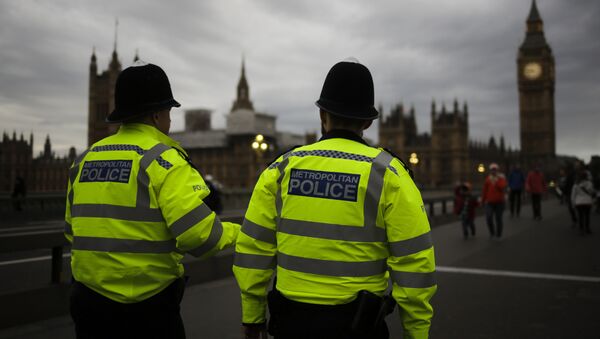UK Prime Minister Theresa May has been advised by the Committee on Standards in Public Life to consider new legislation to deter the intimidation of people standing for parliamentary election, arguing this is a "watershed moment" in British political history which urgently needs a new and concerted response.
The ethics watchdog recommended another law to make social media companies responsible for any racist, extremist or child sexual abuse content featured on their websites with an obligation to remove it quickly or potentially face the threat of legal action.
The report raised a number of other recommendations, including The National Police Chiefs' Council ensures police officers are properly trained to investigate offences committed through social media.
Lord Bew 'This level of vile and threatening behaviour, albeit by a minority of people, against those standing for public office is unacceptable in a healthy democracy.' https://t.co/loghvOTnPw pic.twitter.com/BLpzkuDuv6
— CSPL (@PublicStandards) December 13, 2017
Political parties should also, by December 2018, draw up a joint code of conduct on intimidatory behavior during election campaigns. Ministers should bring forward rules ensuring council candidates no longer have to release their home addresses.
Free Speech
Lord Bew, committee chair, stressed the vitality of Britain's political culture depends upon free and vigorous expression of opinion and it is crucial this freedom is preserved.
"The increasing prevalence of intimidation of parliamentary candidates, and others in public life, should concern everyone who cares about democracy. This is not about defending elites from justified criticism or preventing the public from scrutinizing those who represent them: it is about defending the fundamental structures of political freedom," he said.
The report revealed a "significant" proportion of candidates at the 2017 general election experienced harassment, abuse and intimidation.
Lord Bew says legislation is seldom called for by the Committee but felt needed something stronger to address #intimidation and time is right.#publiclife pic.twitter.com/CVK1h6U7t1
— CSPL (@PublicStandards) December 13, 2017
Lord Bew says the cttee considered recommendation on legislation of #socialmedia platforms for 1st time, simply because of the companies lack of response so far. @PublicStandards #publiclife pic.twitter.com/wKRK5SDVNP
— BCS (@bcs) December 13, 2017
This is a good report, led by NI Civil Rights giant, Lord Bew. https://t.co/qMi69RwOWR
— Sleigh'drianne Peltz (@adi_peltz) December 13, 2017
'Vile and Shocking Abuse'
"There has been persistent, vile and shocking abuse, threatened violence including sexual violence, and damage to property," said Lord Bew, adding: "The widespread use of social media platforms is the most significant factor driving the behavior we are seeing." He warned abuse is already affecting the way MPs are relating to their constituents while candidates who want to serve their communities from standing for public office have been put off.
Greater energy and action is needed by social media companies, political parties, parliament, the police, broadcast and print media to tackled the problem.
This is all the more important, Lord Bew said, in light of recent allegations of sexual harassment and bullying in parliament which will have shaken public confidence in politicians.
"We propose legislative changes that the government should bring forward on social media companies' liability for illegal content online, and an electoral offense of intimidating parliamentary candidates and party campaigners," added the chairman.
The 88-page document stated widespread use of social media has become the most significant factor accelerating and enabling intimidatory behavior in recent years.
"Although social media helps to promote widespread access to ideas and engagement in debate, it also creates an intensely hostile online environment," it said.
"In the fast-paced and rapidly developing world of social media, the companies themselves and government must both proactively address the issue of intimidation online. Not enough has been done. The committee is deeply concerned about the limited engagement of the social media companies in tackling these issues," added the report.
The report comes after it was revealed extremist content disseminated by hate preachers has been found on Linkedin, the business social networking site boasting 500 million users.
The service allows presentations and documents to be shared among professionals, although it has now been found to be hijacked by extremists.
The Tony Blair Institute for Global Change found 18 cases where users of Linkedin, owned by Microsoft, downloaded and shared content by known jihadists.
LinkedIn said it not tolerate or permit activity that violated its terms of service, including hate speech, violence and threats. Daesh, terrorists and those who engage in violent crimes are not welcome on Linkedin and Slideshare.
https://t.co/loghvOTnPw pic.twitter.com/BLpzkuDuv6
— CSPL (@PublicStandards) December 13, 2017


